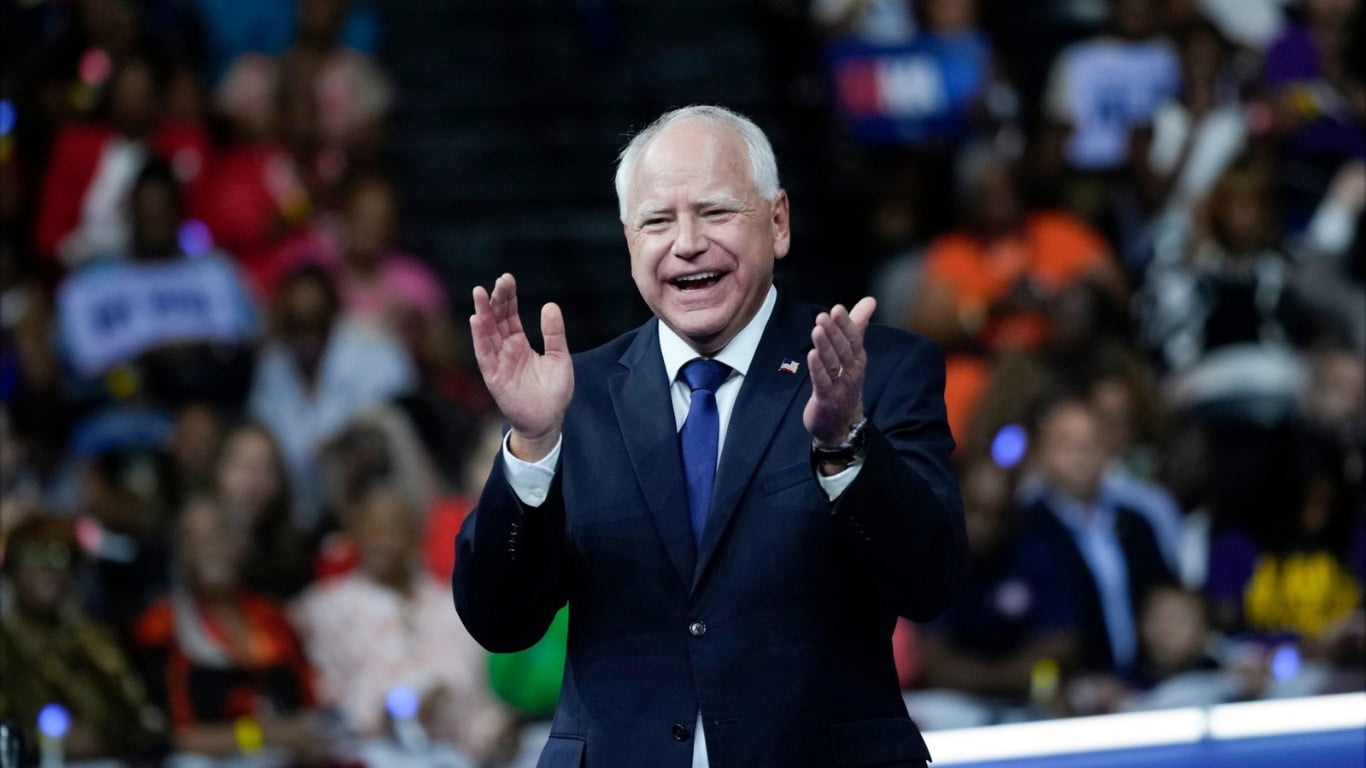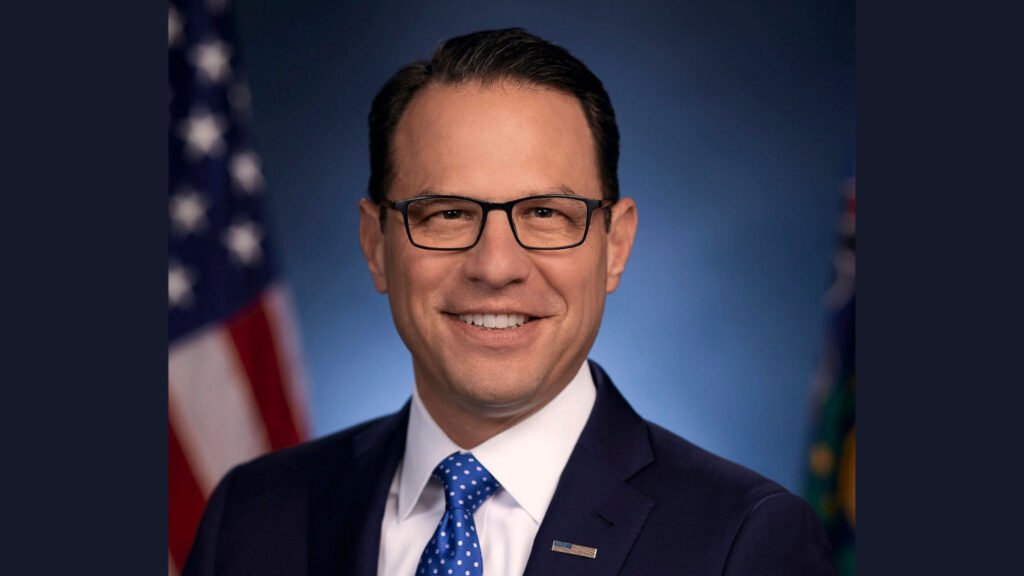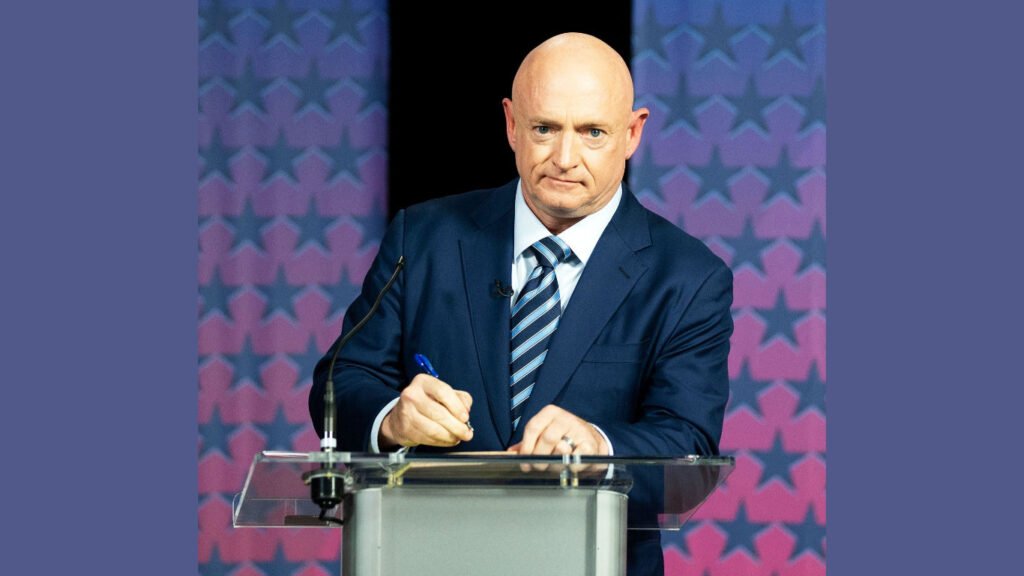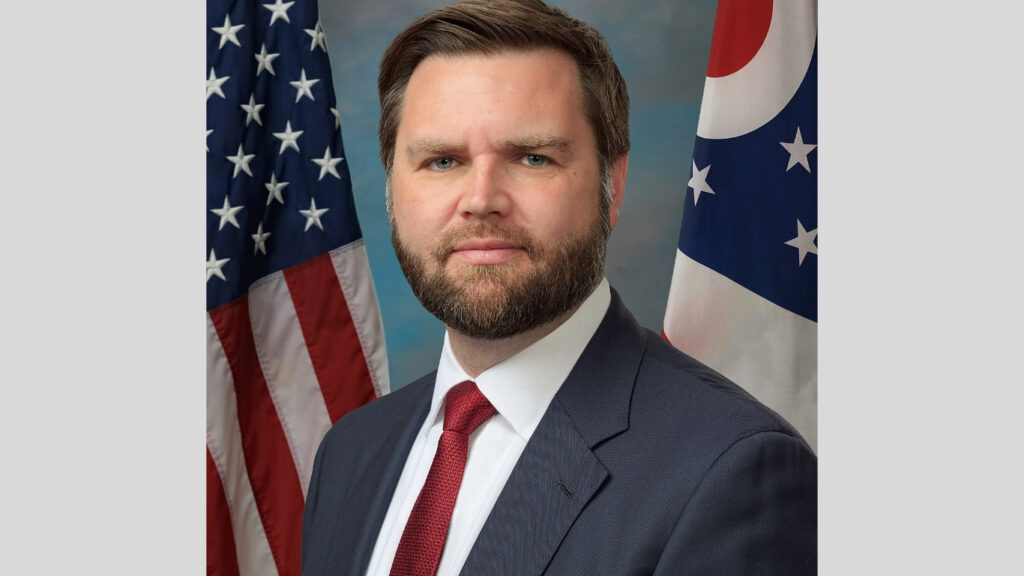Tim Walz is a popular and influential American politician who has been serving as the 41st Governor of Minnesota since January 7, 2019. Before joining politics, he served as a Geography teacher and then in the Army National Guard for about 24 years, after which he became a politician. He rose to the rank of Command Sergeant Major in the 1st Battalion, 125th Field Artillery Regiment of the Minnesota National Guard. While serving in the Army, Walz was named the Nebraska Citizen-Soldier of the Year in 1989 and earned an Army Commendation Medal and two Army Achievement Medals during his service. He served as a member of the U.S. House of Representatives from Minnesota from 2007 to 2019.
In this article, we will know many aspects of Tim Walz life. His early life, impressive political career, challenges of becoming governor, and also a glimpse of his personal life and net worth. If you admire his leadership or simply want to know about his background, this article is for you.
Early Life and Education
Timothy Walz’s real name is Timothy James Walz. He was born on April 6, 1964, in West Point, Nebraska, U.S.A. He was raised in a rural environment. His father, James F. Walz worked as a high school administrator, and his mother, Darlene Rose Walz, was a community activist.
Walz’s family included three siblings, who moved to Butte, Nebraska during his high school years due to his father’s illness. He graduated from Butte High School in 1982 and, inspired by his father’s military service during the Korean War, he enlisted in the Army National Guard at age 17.
In addition to his bachelor’s degree, Walz furthered his education by receiving a Master of Science in Educational Leadership from Minnesota State University, Mankato in 2001. This advanced degree equipped him with the skills necessary for educational administration and policy-making, which later influenced his political career.
Related Articles
Career Before Politics
Before entering politics, Walz began his career as a teacher. In 1989 he spent a year at Foshan No. 1 High School, where he taught English and American history to Chinese students through Harvard’s WorldTeach program. With this course he became one of the first American teachers to do so through a government-sanctioned initiative.
This experience coincided with the Tiananmen Square protests, which significantly shaped his views of China and its people. Walz later co-founded a company to organize educational trips to China for American students, further deepening his connection to the country.
After returning to the United States, Walz began a teaching career in Nebraska, where he met his future wife, Gwen Whipple. The couple moved to Minnesota in 1996, where Walz took a position as a geography teacher and football coach at Mankato West High School. He played a key role in leading the football team to its first state championship in 1999.
Known for his engaging teaching style, Walz hosted trivia tournaments and supported student initiatives, including a gay-straight alliance. His teaching career ended after a DUI arrest in 1994, after which he entered public service.
Political Career Highlights
U.S. House of Representatives (2007-2019)
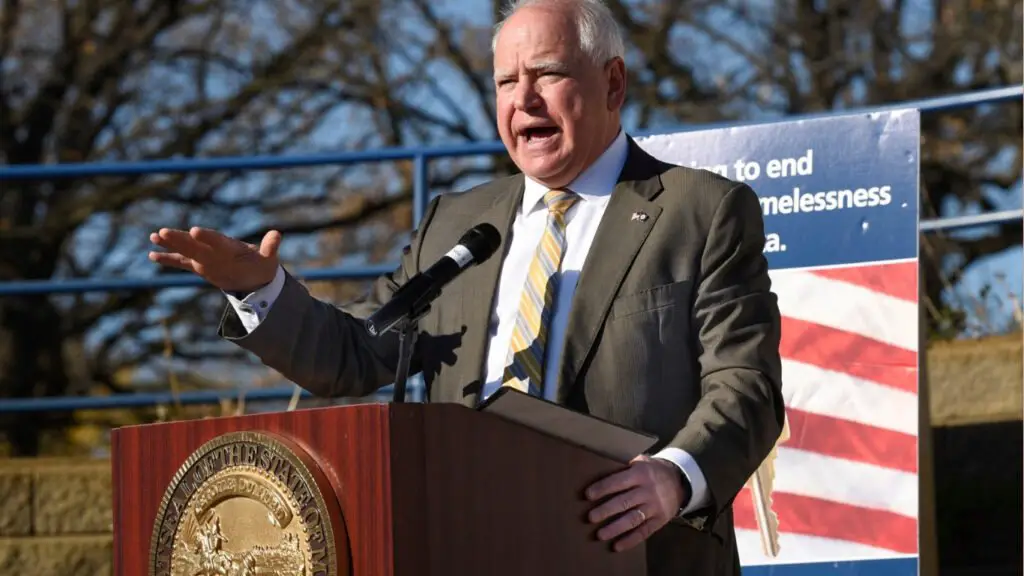
Walz began his political career in 2004 by volunteering for John Kerry’s presidential campaign. In 2006, he was tagged to the US House of Representatives, representing Minnesota’s 1st Congressional District, where he defeated Republican Gil Gutknecht. He was subsequently re-elected to five consecutive terms and served until 2019. During his tenure in the House, he served on the Agriculture, Veterans Affairs, Transportation and Infrastructure, and Armed Services committees.
You can read more about his early life of : Tim Walz Biography on Wikipedia
Governor of Minnesota (2019–present)
Tim Walz was the first to announce his candidacy for governor in 2018, after incumbent Mark Dayton decided not to run for a third term. He won the election against Republican Jeff Johnson, garnering 53.8% of the vote. He was sworn in as the 41st governor of Minnesota on January 7, 2019, and has served as governor ever since.
Key Accomplishments
During his tenure, Walz has focused on a variety of important issues:
- Education: He signed a historic $2.3 billion education budget, the largest in Minnesota history, which includes provisions for universal free school meals.
- Healthcare: Walz has worked to reduce prescription drug costs and enacted the Alec Smith Insulin Affordability Act, which provides emergency assistance for insulin.
- Public Safety: In response to growing concerns about crime, he allocated $300 million for public safety initiatives and enacted legislation to increase gun control, including expanded background checks and red flag laws.
- Workers’ Rights: His administration established paid leave to protect employees, ensured paid sick days, and banned non-compete agreements.
- Environmental Initiatives: Walz has committed Minnesota to achieving 100% clean electricity by 2040 and has signed several climate-related initiatives into law.
- Voting rights: He has overseen the largest expansion of voting rights in Minnesota in decades, restoring voting rights to more than 55,000 formerly incarcerated people and establishing automatic voter registration.
Leadership During the COVID-19 Crisis
Tim Walz faced significant challenges during the COVID-19 pandemic, which has become a centerpiece of his political legacy and, more recently, the subject of scrutiny following his selection as Vice President Kamala Harris’s running mate.
Initial response to the pandemic
When the pandemic began in March 2020, Walz implemented a series of public health measures aimed at controlling the spread of COVID-19. His administration issued a stay-at-home order that lasted until mid-May 2020, followed by a mask mandate indoors. These actions were generally supported by public health officials, but Republican critics accused him of overreach and harming the economy.
Public health outcomes
Under Walz’s leadership, Minnesota achieved a relatively low COVID-19 mortality rate compared to many other states. An analysis by the Commonwealth Fund ranked Minnesota ninth for health outcomes during the pandemic, indicating that Walz’s policies may have mitigated some of the worst effects of the virus. However, critics argue that strict lockdowns and mandates led to significant social and economic repercussions, particularly affecting children’s mental health and education.
Public health outcomes
Under Walz’s leadership, Minnesota achieved a relatively low COVID-19 mortality rate compared to many other states. An analysis by the Commonwealth Fund ranked Minnesota ninth for health outcomes during the pandemic, indicating that Walz’s policies may have mitigated some of the worst effects of the virus. However, critics argue that strict lockdowns and mandates led to significant social and economic repercussions, particularly affecting children’s mental health and education.
Controversy and criticism
Despite these health outcomes, Walz’s handling of the pandemic has received considerable criticism. A state audit revealed that the Minnesota Department of Education failed to act on warning signs related to a significant COVID-19 fraud scheme involving federally funded nutrition programs, which critics claim occurred under Walz’s watch. This has been cited as a major weakness after making national headlines.
In addition, Walz’s response to the protests that followed the killing of George Floyd in May 2020 has also come under scrutiny. Critics argue that he hesitated to deploy the National Guard during the riots, resulting in massive damage to businesses in Minneapolis. This delay has been cast by opponents as a failure of leadership during a critical moment.
Future Prospects
As of August 2024, Walz has been selected as Vice President Kamala Harris’ running mate for the upcoming presidential election, reflecting his rising profile in national politics. Walz was chosen over other contenders including Pennsylvania Governor Josh Shapiro, Arizona Senator Mark Kelly, Kentucky Governor Andy Beshear, and Transportation Secretary Pete Buttigieg. His tenure as governor has established him as a prominent figure in the Democratic Party, particularly in discussions about education, public safety, and healthcare reform.
Tim Walz Net worth
According to current figures, Tim Walz’s net worth is estimated to be around $1 million to $600,000 million. He receives an annual salary of around $127,629 to $130,000 as the Governor of Minnesota. Prior to this, he received an annual salary of $174,000 as a U.S. Representative. Apart from this, he also receives a military pension.
Personal life
Tim Walz was married to Gwen Walz in 1994. They have two children: daughter Hope Walz, born in January 2001, and son Gus Walz, born in October 2006.

Tim and Gwen Walz first met while teaching at Alliance High School in Nebraska, where they both worked – Gwen as an English teacher and Tim as a social studies teacher. Gwen has also faced challenges with infertility. They underwent IVF treatments for seven years before giving birth to their children. Tim frequently shares family memories on social media, celebrating their accomplishments and reflecting on their parenting journey.
Conclusion
Overall, Tim Walz’s career has been intertwined with public service, dedication to education, and military duty. Walz’s tenures from the U.S. House of Representatives to governor have established him as an influential Minnesota politician. Through his various roles he has consistently demonstrated a commitment to improving the lives of Minnesotans, balancing progressive ideals with pragmatic governance.
Faqs
Ans: Timothy Walz is a popular and influential American politician who has been serving as the 41st Governor of Minnesota since January 7, 2019.
Ans: April 6, 1964, West Point, Nebraska, U.S.A.
Ans: 60 Years old.
Ans: 6 feet 2 inches (188 cm)
Ans: Graduated from Butte High School in 1982 and Master of Science degree from Minnesota State University, Mankato in 2001.
Ans: He is a member of the Democratic Party.
Ans: Walz served as a U.S. Congressman from 2007 to 2019.
Ans: Walz assumed office on January 7, 2019.
Ans: Walz enjoys hunting, fishing, and engaging with the community.
Ans: Around $1 million to $600,000 million

